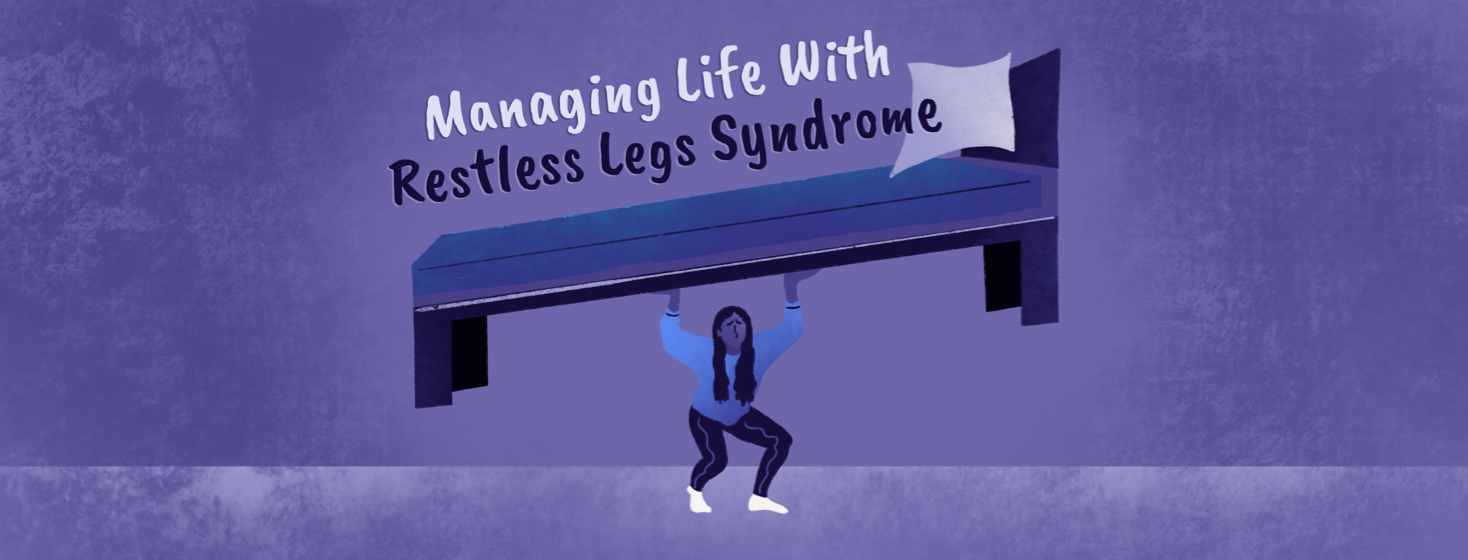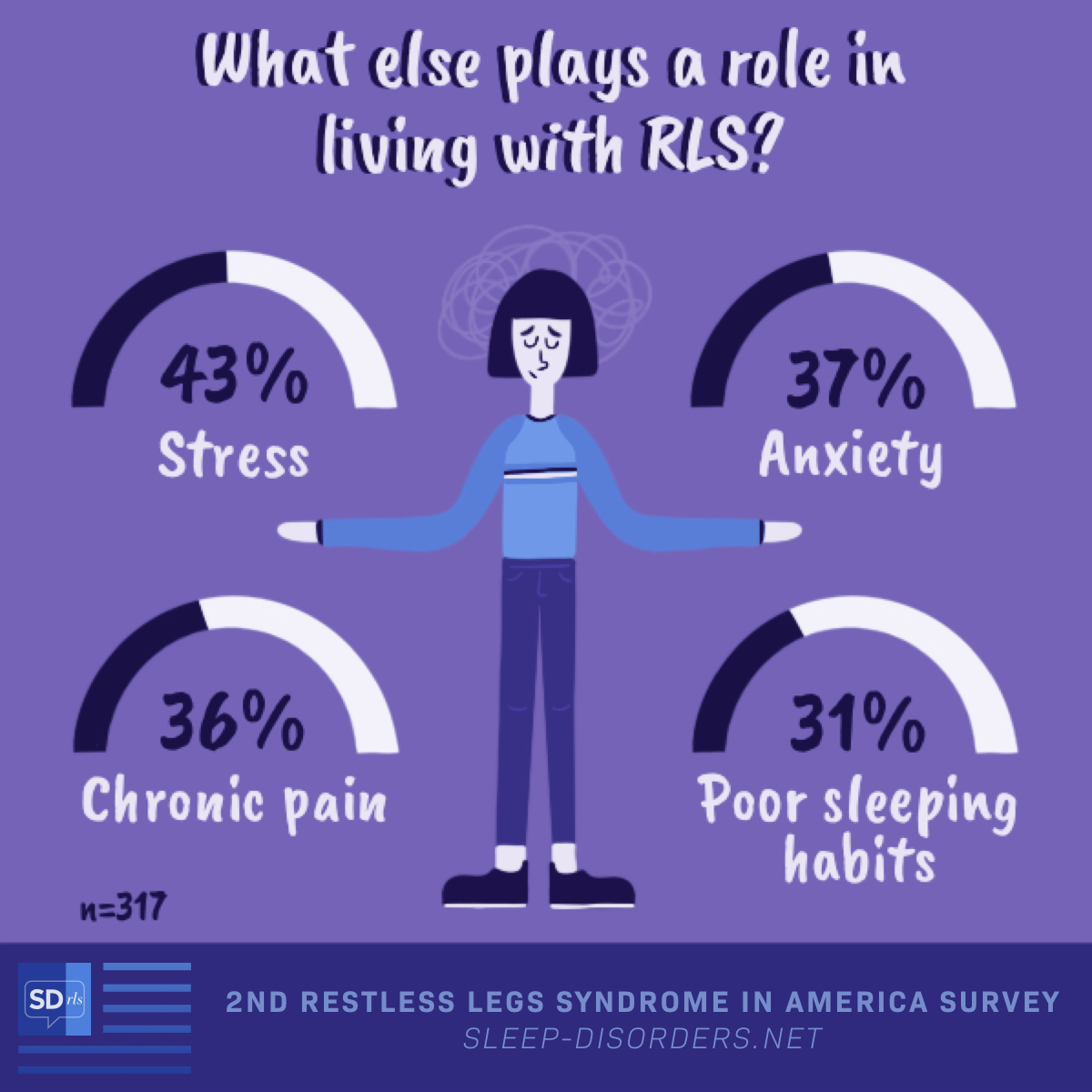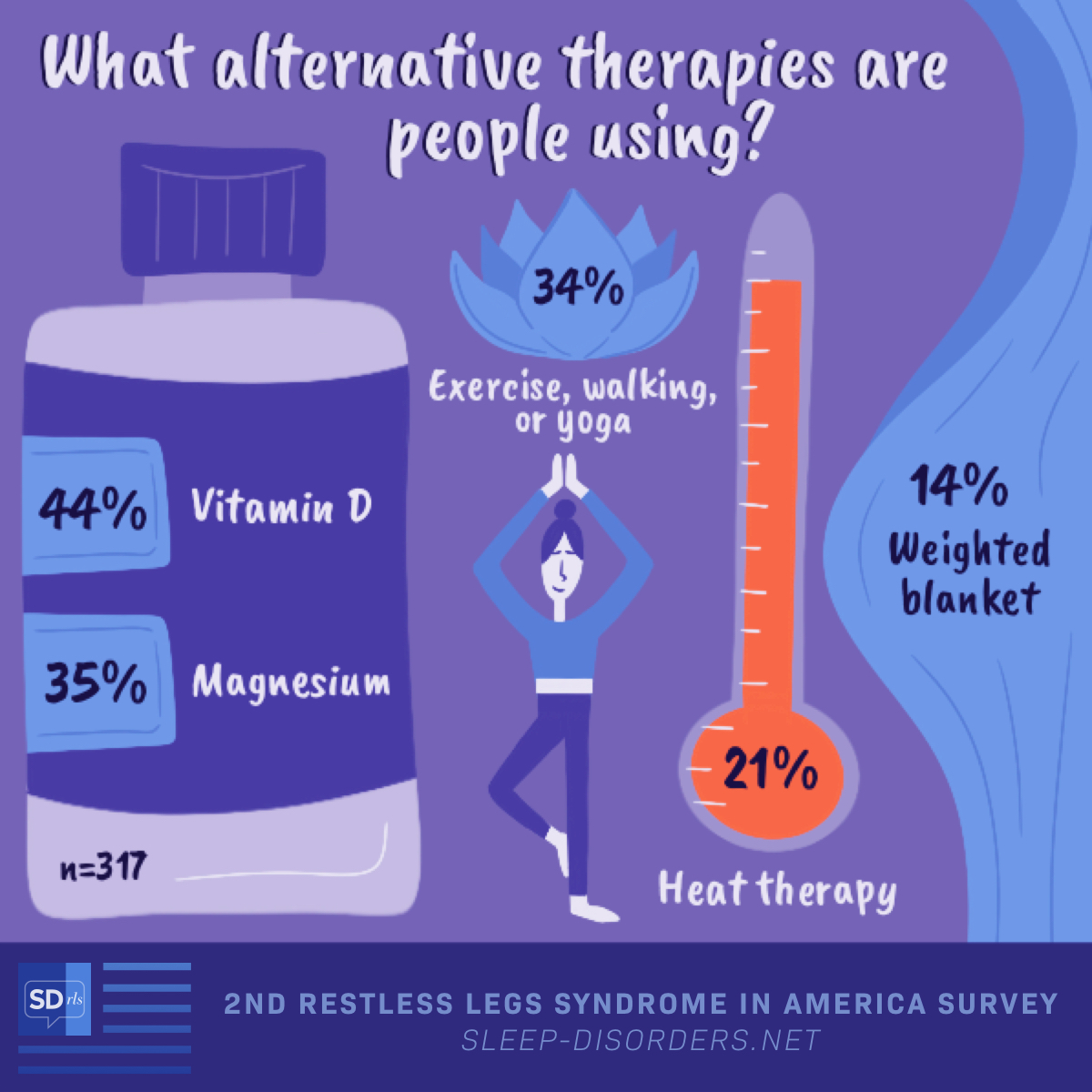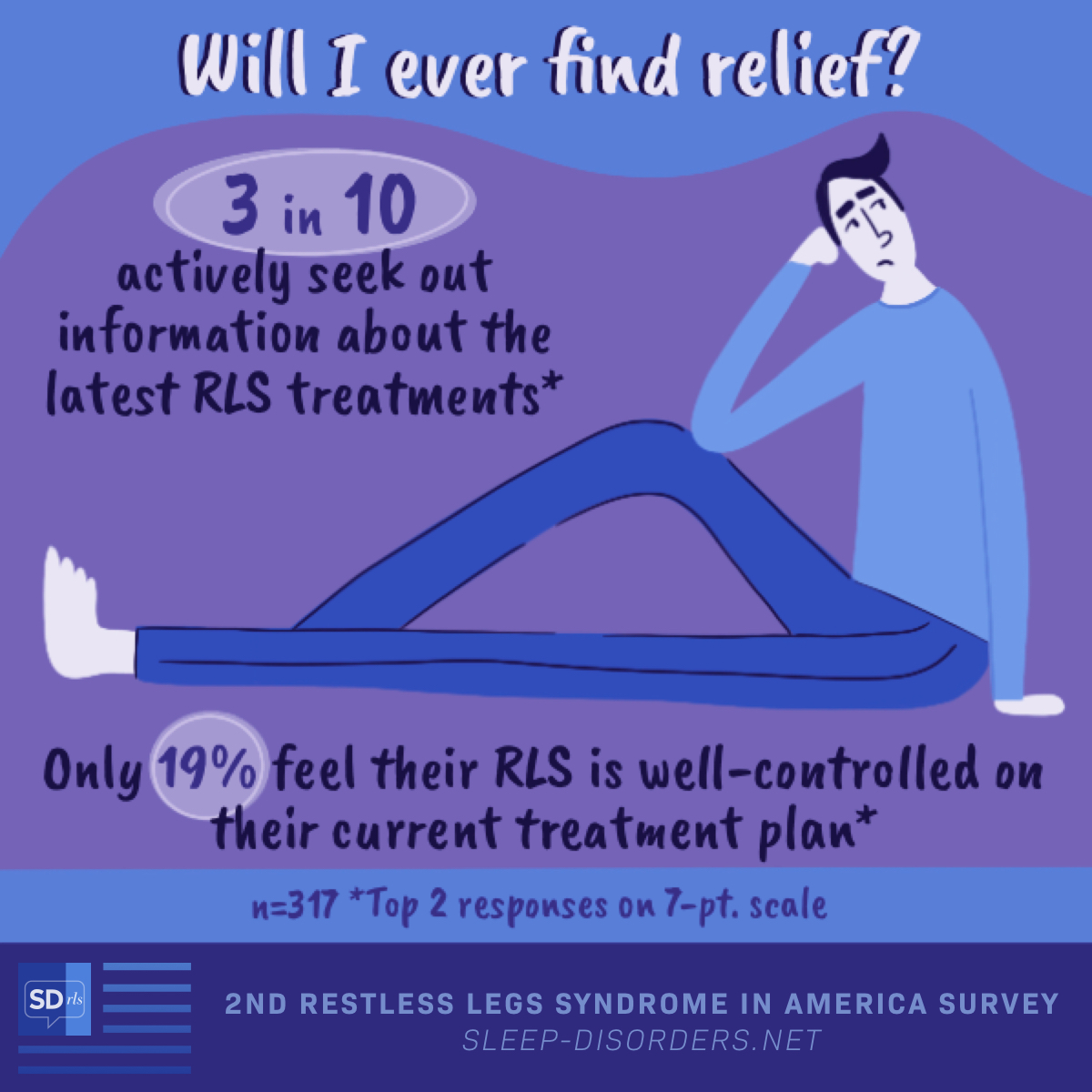Why Is Restless Legs Syndrome So Hard to Treat? 2nd Sleep Disorders In America Survey Results
If you are living with restless legs syndrome (RLS) and feel frustrated by the list of treatments that have not helped your restless legs, you are not alone. RLS is a neurological disorder that is hard to describe, hard to diagnose, and hard to effectively treat.
Many people who live with RLS spend years trying to find something – anything – to ease the unpleasant sensations that make relaxation and sleep nearly impossible.
If this sounds familiar, what options do you have? What are some things to consider as you continue the quest for a good night’s sleep?
The impact of other health conditions
Most people who have RLS also live with other health conditions. In our 2nd Sleep Disorders In America Survey, 97 percent of people surveyed were diagnosed with another health condition besides RLS. These include hypertension, arthritis, neuropathy, and fibromyalgia.
Managing other health conditions can make it harder to treat RLS. The drugs that people take to help 1 health problem can have a negative effect on another health problem. This can mean people are forced to choose which condition they want to improve. In our survey, 35 percent* of respondents tend to prioritize treating other health conditions over their RLS.
A world full of triggers
One of the hardest things about living with RLS is figuring out how to prevent symptoms or reduce their severity before they even start. Some people say it is like trying to break a code that your own body has created.
Common triggers include heat, stress, lack of exercise, and certain foods. Caffeine often makes it onto the list of things people avoid. Of the 62 percent of people surveyed who avoid caffeine, 38 percent cite that it has made a difference in improving their sleep quality.
Weighing treatment options
There are many factors that people consider when making treatment decisions, including cost, side effects, and how effective it is.
Even though the U.S. Food and Drug Administration (FDA) has approved 4 drugs to treat RLS, 82 percent of people surveyed currently use over-the-counter or alternative therapies. Plus, 41 percent* would rather make lifestyle changes than take prescription drugs.
How well do treatments work?
Despite the availability of drugs and alternative treatment options, many people with RLS continue to search for a better solution. Of those surveyed, 86 percent regularly see a doctor for their RLS, but only 27 percent are confident they are doing everything necessary to manage their RLS.
One concern that is unique to people with RLS is the fear of augmentation. Augmentation is the sudden, severe worsening of RLS symptoms while taking a drug that had been working well in the past. This can make it even more difficult for people to feel comfortable starting a drug or changing to a different drug if they have concerns or experience with augmentation.
A community that understands
No one has to go through a restless legs syndrome journey alone. Many of our community advocates have shared the ups and downs of their treatment experiences. They write about the challenges of finding a medicine that works and what it feels like when that drug stops working. Many have also shared their experiences with trying different alternative treatments like magnesium, weighted blankets, and acupressure.
Some of their articles include:
- Once Upon a Time: The Night I Forgot My Medications
- Agony Aunt: Pharmacological Interactions With My Restless Legs Syndrome
- When the Meds Don’t Work
- RLS Fear: Augmentation
- The Most Frustrating Thing About My RLS Is Its Persistence
If you are interested in learning more about experiences with different non-prescription drug options, check out our featured collection of lifestyle changes and alternative treatments.
What have your treatment experiences been like? Tell us your story, check out our forums, or leave a comment below.
The 2nd Sleep Disorders In America Survey was conducted online from May through August 2021. Of the 1,890 people who completed the survey, 317 were restless legs syndrome respondents.
*Top 2 responses on 7-point scale




Join the conversation